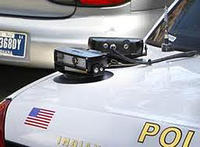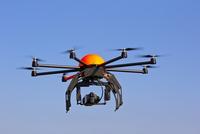-
Virginia police built massive data base of political rallies participants
From 2010 until last spring, the Virginia State Police (VSP) used automatic license plate readers (ALPRs) to collect information about – and build a massive data base of — political activities of law-abiding people. The VSP, for example, recorded the license plates of vehicles attending President Obama’s 2009 inauguration, as well as campaign rallies for Obama and vice presidential candidate Sarah Palin. Following a strong opinion by Virginia Attorney General Ken Cuccinelli, the VSP discontinued the practice, and the agency says it has purged its license plate database, and now disposes of ALPR-obtained information within twenty-four hours of collection, unless it is relevant to a clearly defined criminal investigation.
-
-
U.S. keeping too much data on too many people for too long: report
A new study surveys five methods of data collection by U.S. intelligence and law enforcement agencies, and finds that these agencies not only collect massive amounts of innocent Americans’ data, but can share and store this data for up to seventy-five years or more, creating opportunities for abuse and clogging government databases.
-
-
NSA tried to crack Tor anonymity tool
In its efforts to gather more intelligence, and overcome obstacles to this effort, the National Security Agency (NSA) has repeatedly tried to develop attacks against people using Tor, a software tool designed to protect online anonymity – and which is primarily funded and promoted by the U.S. government itself to help political activists, whistleblowers, militaries, and law enforcement. The NSA’s determined effort to crack Tor raises questions about whether the agency, deliberately or inadvertently, acted against Internet users in the United States when attacking Tor. One of the main functions of Tor is to hide the country of all of its users, meaning any attack could be hitting members of Tor’s large U.S. user base.
-
-
Restricting license plate readers undermines law enforcement: study
White paper argues that Massachusetts legislation restricting the use of license plate readers (LPRs) is rooted in exaggerated fears and misconceptions, and will reduce effectiveness of LPR technology and weaken law-enforcement’s efforts to pursue criminals.
-
-
More Americans see their electronic equipment seized by DHS at the border
The American Civil Liberties Union (ACLU) has released details of an investigation showing how U.S. law enforcement and other agencies exceed their powers in the name of homeland security. The ACLU points to the practice of the U.S. border agents searching and seizing the electronic devices of Americans at the border. Public data shows that more Americans are having their electronic devices searched.
-
-
Police’s facial recognition program becomes a political issue in Ohio
Attorney General Mike DeWine of Ohio confirmed last week that local and state law enforcement have used facial recognition software since June of this year to match images of potential suspects and victims to pictures on the state’s drivers’ licenses and mug shots. The Democratic challenger for the Attorney General post faulted DeWine’s office for launching the program on 6 June without any public notice.
-
-
Security vs. privacy
Those who ask you to choose security or privacy and those who vote on security or privacy are making false choices. That’s like asking air or water? You need both to live. Maslow placed safety (of which security is a subset) as second only to food, water, sex, and sleep. As humans we crave safety. As individuals and societies, before we answer the question “security or privacy,” we first have to ask “security from whom or what?” and “privacy from whom and for whom?”
-
-
Privacy board wants Feds to update security agencies’ operating rules
The independent Privacy and Civil Liberties Board says U.S. national security agencies are operating under outdated rules which should be revised to reflect advances in technology.The oversight board says that rules governing collection and retention of data about Americans need be revised to “appropriately capture both the evolution of technology and the roles and capabilities of the intelligence community since 9/11.”
-
-
U.K. detains, questions NSA revelations journalist’s partner
David Miranda, the partner of Guardian’s Glenn Greenwald who interviewer Edward Snowden and who wrote several stories based on documents provided by Snowden, was detained for nine hours by U.K. authorities at Heathrow Airport and questioned under schedule 7 of the Terrorism Act 2000. Miranda was released – schedule 7 allows a suspect to be held for a maximum of nine hours, and then the police must release or formally arrest the individual. – but the electronic equipment he was carrying with him, including his mobile phone, laptop, camera, memory sticks, DVDs, and games consoles were confiscated by the authorities.
-
-
NSA revelations hobble pursuit of a comprehensive cyberdefense initiative
NSA director General Keith Alexander has proposed a digital version of Ronald Reagan’s space-based Star Wars missile defense program, which Reagan unveiled in 1983. In Alexander’s vision, when a cyberattack is launched at the United States, the defense system would intercept and thwart the attack before it caused any damage. Intercepting a cyberattack would require the NSA to tap, track, and scan all cyber traffic entering the United States. The technology needed to intercept cyberattacks, however, is strikingly similar to the technology the NSA uses for the types of surveillance Snowden exposed. Post-Snowden, it is doubtful that the administration would pursue a comprehensive cyberdefense initiative, or that lawmakers would accept it.
-
-
Automatic license plate readers used to collect, store data on millions of Americans

Automatic license plate readers are the most widespread location tracking technology available to law enforcement. Mounted on patrol cars or stationary objects like bridges, they snap photos of every passing car, recording their plate numbers, times, and locations. At first the captured plate data was used just to check against lists of cars law enforcement hoped to locate for various reasons (to act on arrest warrants, find stolen cars, etc.). Increasingly, however, all of this data is being fed into massive databases that contain the location information of many millions of innocent Americans stretching back for months or even years.
-
-
States move to draft their own drone laws

Advances in drone technology and drop in prices have led media and other organizations, and even private citizens, to purchase drones to do their own investigations. Several states have now drafted their own drone laws.
-
-
Studying how journalists and private citizens use of drones
Newly published research offers a groundbreaking perspective on the controversial use of unmanned aerial vehicles in journalism and mass communication, or “drone journalism.” Until now, there has been no formal research and academic writing on the use of smaller drones by news organizations and private citizens.
-
-
ACLU files lawsuit challenging NSA's phone surveillance
In the wake of the past week’s revelations about the NSA’s surveillance of phone calls, the yesterday American Civil Liberties Union (ACLU) filed a lawsuit charging that the program violates Americans’ constitutional rights of free speech, association, and privacy.
-
-
Cloud computing user privacy needs serious reform: scholars
When Web surfers sign up for a new online service or download a Web application for their smartphone or tablet, the service typically requires them to click a seemingly innocuous box and accept the company’s terms of service and privacy policy. Agreeing to terms without reading them beforehand, however, can adversely affect a user’s legal rights, says a new paper by an expert in technology and legal issues.
-
- All
- Regional
- Water
- Biometrics
- Borders/Immig
- Business
- Cybersecurity
- Detection
- Disasters
- Government
- Infrastructure
- International
- Public health
- Public Safety
- Communication interoperabillity
- Emergency services
- Emergency medical services
- Fire
- First response
- IEDs
- Law Enforcement
- Law Enforcement Technology
- Military technology
- Nonlethal weapons
- Nuclear weapons
- Personal protection equipment
- Police
- Notification /alert systems
- Situational awareness
- Weapons systems
- Sci-Tech
- Sector Reports
- Surveillance
- Transportation
Advertising & Marketing: advertise@newswirepubs.com
Editorial: editor@newswirepubs.com
General: info@newswirepubs.com
2010-2011 © News Wire Publications, LLC News Wire Publications, LLC
220 Old Country Road | Suite 200 | Mineola | New York | 11501
Permissions and Policies
Editorial: editor@newswirepubs.com
General: info@newswirepubs.com
2010-2011 © News Wire Publications, LLC News Wire Publications, LLC
220 Old Country Road | Suite 200 | Mineola | New York | 11501
Permissions and Policies
